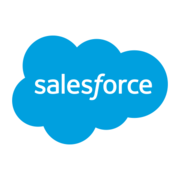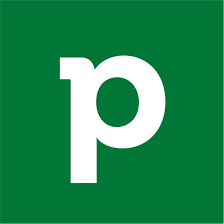The Best CRM Software for Small Business in 2025


Customers are the bread and butter of most businesses — but when you have hundreds or even thousands of them at different stages in the pipeline, you want to rely on more than just luck and a good memory to manage them. This is where software comes in. But what’s the best CRM software for small businesses?
What is a CRM Software?
Customer relationship management (CRM) is a piece of software for managing your company’s relationships with leads and existing customers. Instead of trying to keep track of your emails, calendar, and various apps separately, CRM software handles all of this in one fell swoop.
Stay connected to customers, streamline processes, and improve profitability all in one place.
How can CRM software benefit small businesses?
You’re unlikely to come across a successful company that isn’t using some kind of CRM software. But what exactly is it about these programs that offer so much value?
To be successful as a business, you need to know who your customers are and what you can offer them. A good CRM automates this process by segmenting your customers based on their interests and demographics, allowing you to personalize their experience — which should mean more sales.
CRM software also helps you manage your leads and stop anyone from falling through the cracks. Store details about your prospects so you can systematically check in and follow up, which helps to improve conversion rates.
What to consider when choosing a CRM software
Customer database software for small businesses is an essential tool — but that doesn’t mean that every SMB will choose the same one.
To that end, we’re giving you all the information you need to make an informed decision on your business software. Let’s take a look at what you need to consider when choosing CRM software.
Robust data security
In the twenty-first century, no business is immune to being hacked. Around 64% of companies have experienced some kind of cyber attack, so data security needs to be a priority. Look out for:
- Two-factor authentication
- Encryption
- Advanced user permissions
Customer support features like live chat are also important, so you know there’s always someone to answer your questions if problems crop up.
Ease of use
Your CRM software will be in use constantly. Making sure that your software is easy to use and simple to learn is a must. CRM software with high-learning curves can be a nightmare to integrate, which can slow down your business.
Pipeline management
Your CRM is all about getting a hold of your customers and where they are in the sales process. For this to be possible, it has to make your pipeline management easier. This may include features such as sending automatic emails to customers based on their behavior or prompting you to make follow-up calls when appropriate.
Best CRM software for small business
Once you’ve weighed up your company’s unique circumstances and preferences, you’re ready to pick your CRM software of choice.
Below, we’ve compiled a list of our top ten and what makes them stand out.
1. HubSpot CRM
Best CRM for startups
Key takeaway: Affordable yet comprehensive, with a variety of sales and marketing tools.

HubSpot is one of the best-known CRMs in the game for a reason. It boasts a wide range of features, with dedicated hubs for sales, marketing, customer service, content management, and operations. Plus, there is a range of integrations available with other apps (like Gmail), so you can do practically everything in one place.
It offers forever free plans, with access to limited features, or you can upgrade to a Starter, Professional, or Enterprise plan for $45, $800, or $3,600 per month respectively. This makes it a great choice for startups because there are limited barriers to getting started and it can grow with you.

2. Drip

Best CRM for eCommerce
Key takeaway: Various features tailored to eCommerce, with flexible pricing options.

Drip offers a CRM platform made especially for eCommerce, with all the tools you need to automate your small business. Key features include a visual or text builder to create emails, automation workflows, conversion tracking, segmentation, and more. There are also tools to handle marketing based on purchase intent, where you can learn about your customers in order to finetune your strategy.
Unlike Hubspot, Drip doesn’t have a free CRM plan available. But it does offer some of the most flexible pricing on this list, with the plan cost increasing incrementally depending on how many email contacts you have in your database — this can go from $39 per month to five figures.

3. Constant Contact

Best CRM for Email Marketing
Key takeaway: Email marketing tool that can double up as a CRM platform.

Constant Contact is best known as a platform for managing your email marketing — but it contains a full set of marketing tools and a place for you to manage your email contacts. So, if you communicate with the bulk of your customers and leads over email, it’s a great option to oversee your leads and prospects while accessing some fantastic tools that’ll help you streamline the process.
These include a drag-and-drop tool for making your emails, A/B testing, landing pages, and a simple dashboard to oversee everything.
And with pricing starting at less than $10 a month for basic features, you can’t go wrong.

4. Salesforce Sales Cloud

Best CRM for B2B
Key takeaway: Established CRM platform with great features for efficiency and automation.

Like Hubspot, Salesforce is a huge name in the world of customer management — and it’s been around since 1999, making it one of the oldest and most established too.
Sales Cloud stands out for its use of automation. You can use it to leverage AAI and data to increase your productivity, speed up the buyer journey, and automate. While it’s suitable for all business types, Sales Cloud is particularly well-suited for B2B, thanks to its advanced features for managing opportunities and staying connected including multi-channel support, storefront design tools, content management, product configuration, and visualization.
As you may expect, pricing is on the higher side, at between $25 and $300 per month.

5. Zoho CRM

Best Affordable CRM
Key takeaway: Cost-effective platform with all the crucial features you need.

Zoho claims its CRM offers the fastest implementation in the market for enterprise businesses, but that doesn’t mean you’re sacrificing functionality. It offers a range of useful features for sales and marketing that include lead scoring, customer segmentation, and website visitor tracking. There are also plenty of ways to automate your work and boost efficiency.
Zoho also boasts some of the most affordable pricing on this list. $14 for a standard plan is too good a deal to resist, and even its most comprehensive platform comes in at only $52, while its competitors are charging in the thousands.

6. Pipedrive

Best Sales Tracker for Small Businesses
Key takeaway: Track your sales like never before with automation and handy tools.

Pipedrive is all about using automation to make your life as easy as possible. The program nurtures your leads for you, allows you to choose the triggers and desired actions of your choice, and can take over manual processes on your behalf.
In terms of plan pricing, it offers a range of options that go from $14 to $99 per user per month depending on the features you need.

7. Apptivo
Best Customizable CRM
Key takeaway: Functionality to customize your dashboard to your needs.

Apptivo’s CRM is there to walk you through all stages of the sales pipeline, from the first email to closing deals. The convenient Kanban view makes it easy for you to visualize what’s happening with your leads. However, one of its standout features is the high level of customization available — you can design your workflow to your needs through intuitive drag-and-drop tools.
There are also various integrations available, from Dropbox to PayPal to Slack.
The most basic plan starts out at just $10, but it can get pricier for Enterprise users, who need to contact the team for a custom quote.

8. vTiger
Best Open-Source CRM
Key takeaway: Open-source-based platform with a mobile app and other useful features.

vTiger is a fantastic platform that can handle just about any aspect of customer management for a small business — from web forms to sales automation. It’s also one of the few options in the business that is based on open-source software, which is a plus for those who want fully customizable CRM software.
There’s a convenient mobile app (available for Android and iOS), which contains handy features like the option to scan business cards straight onto your CRM and take voice notes related to your meetings and sales.
Unlike other options, there’s minimal variation in pricing, with it ranging from $30 to $42 per person per month.

9. Microsoft Dynamics 365
Best CRM for Microsoft users
Key takeaway: Convenient CRM platform that integrates well with other Microsoft products

Microsoft may not be best known for its CRM, but that doesn’t mean you should rule this one out. If your team are keen users of Microsoft software (including LinkedIn), using Microsoft Dynamics 365 as your CRM will be an easy transition to make.
It offers productivity tools to manage your workflow and AI insights on your customers to give recommendations, alongside other features.
Pricing for Microsoft Dynamics is $65 per user per month, putting it on the pricier end of the spectrum. However, you can access some discounts if you make use of Microsoft’s other apps.

10. Freshsales

Best CRM for AI
Key takeaway: Impressive CRM with a powerful AI assistant to help you optimize your operations.

Freshsales is a popular CRM choice among entrepreneurs, and it’s not hard to see why. As well as all the usual features that come with the software, like pipeline management and analytics report, it comes with an AI assistant called “Freddy” to improve your decision-making. With Freddy’s help, you can send personalized emails to leads and access predictions about which contacts are worth following up with.
It even offers a free plan, although you’ll need to pay for the more advanced features.

Think big for your small business
Finding the best CRM software for a small business involves no shortage of considerations. Do the features justify the price tag? Will your team be able to adjust to the program easily? The list goes on — but hopefully, our top picks have at least narrowed down your search.
If you’re still keen to explore the best software for small businesses, we at Findstack can help. Take a look through our software categories, to find out all you need to know about various types of software, for various business applications!
Related Products





